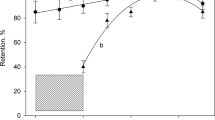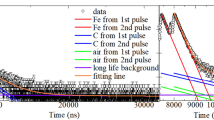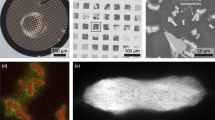Abstract
THE determination of cobalt at low concentration has become important in relation to materials associated with atomic energy uses. Specifications for steels for such purposes require 0.02 por cent maximum and in some cases, 0.01 per cent maximum cobalt.
This is a preview of subscription content, access via your institution
Access options
Subscribe to this journal
Receive 51 print issues and online access
$199.00 per year
only $3.90 per issue
Buy this article
- Purchase on Springer Link
- Instant access to full article PDF
Prices may be subject to local taxes which are calculated during checkout
Similar content being viewed by others
References
Allan, J. E., Spectrochim. Acta, 18, 259 (1962).
Gatehouse, B. M., and Willis, J. B., Spectrochim. Acta, 17, 710 (1961).
Box, G. F., and Walsh, A., Spectrochim. Acta, 16, 255 (1960).
Allan, J. E., Nature, 187, 1110 (1960).
Author information
Authors and Affiliations
Rights and permissions
About this article
Cite this article
McPHERSON, G., PRICE, J. & SCAIFE, P. Application of Atomic Absorption Spectroscopy to the Determination of Cobalt in Steel, Alloy Steel and Nickel. Nature 199, 371–372 (1963). https://doi.org/10.1038/199371b0
Issue Date:
DOI: https://doi.org/10.1038/199371b0
Comments
By submitting a comment you agree to abide by our Terms and Community Guidelines. If you find something abusive or that does not comply with our terms or guidelines please flag it as inappropriate.



